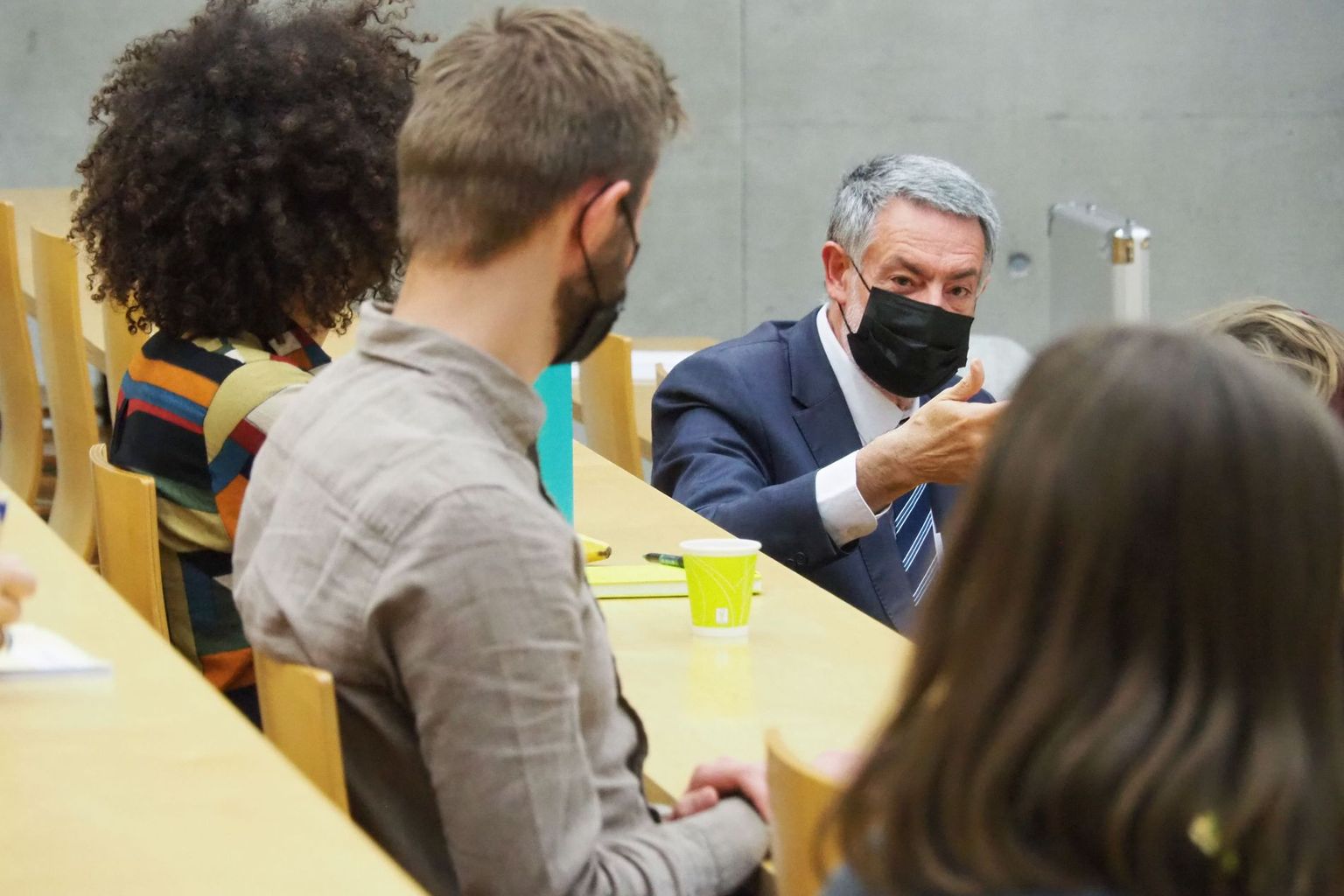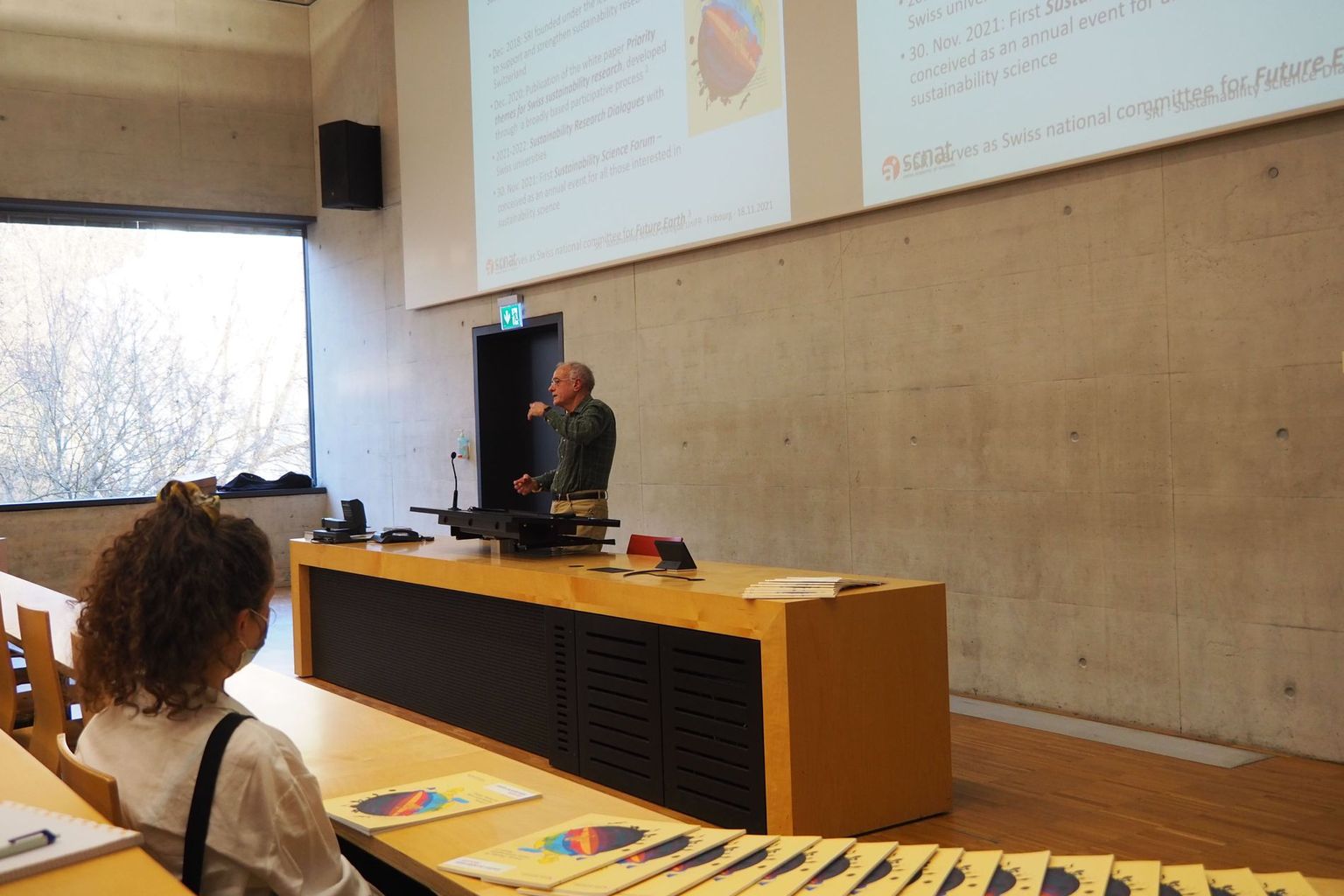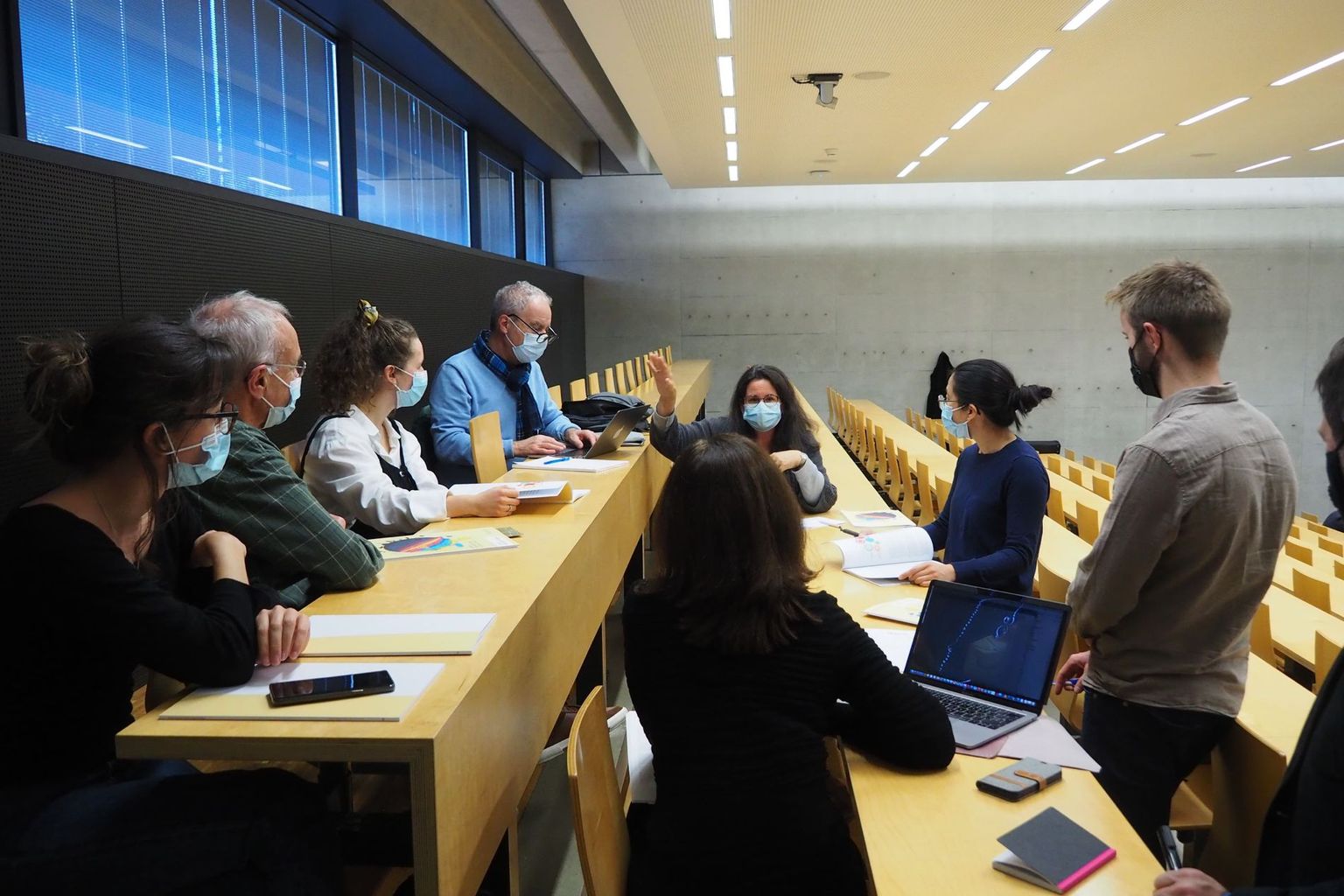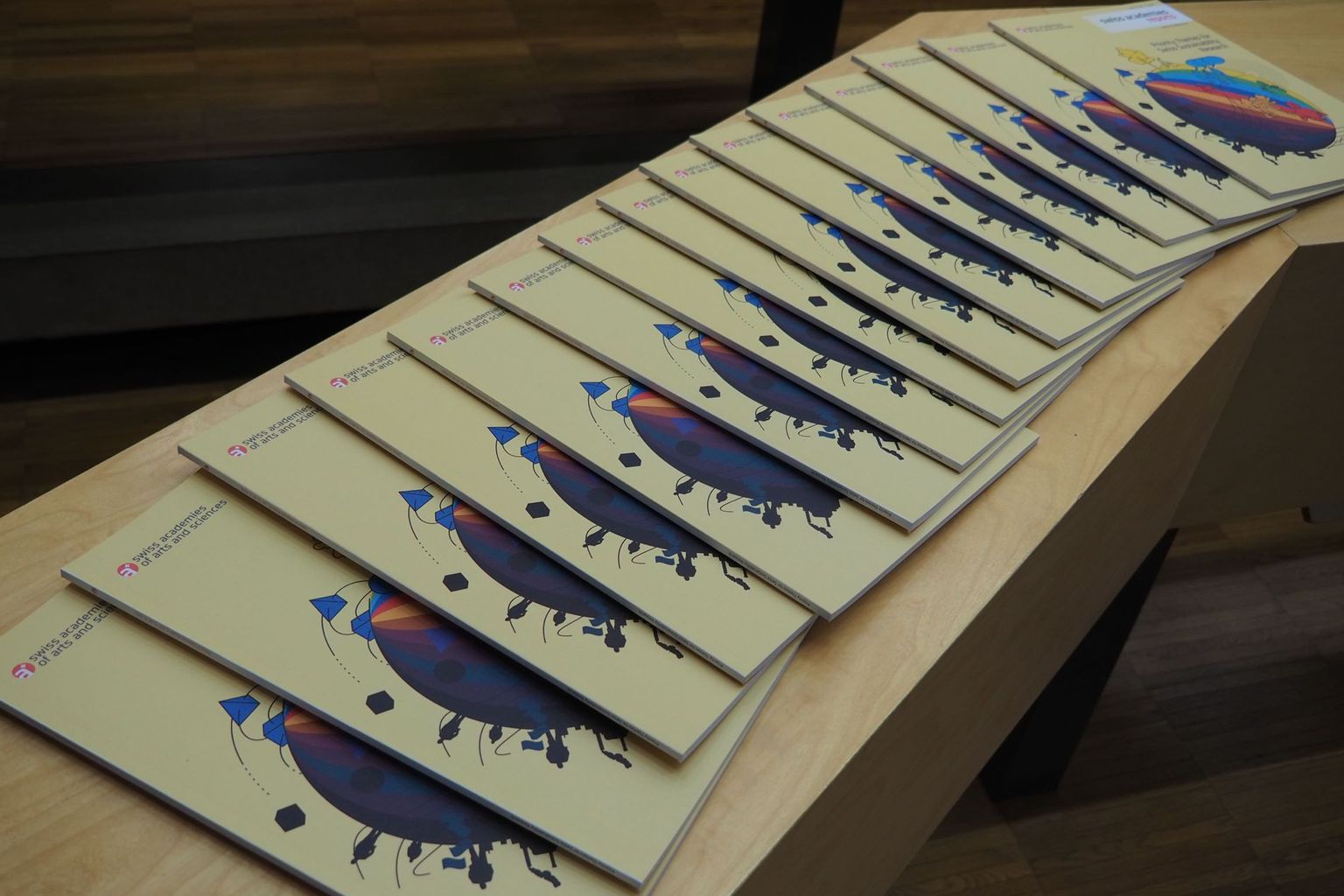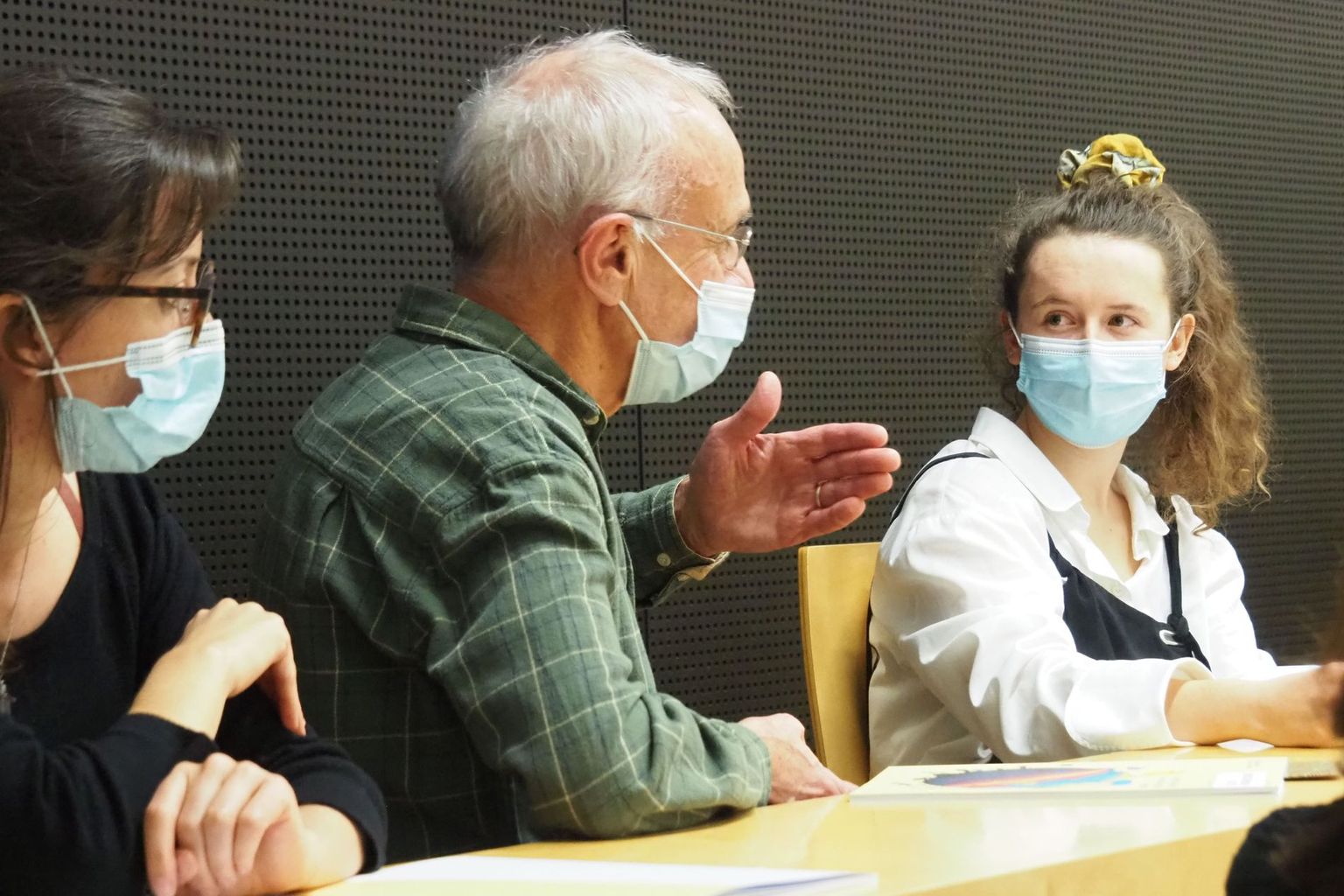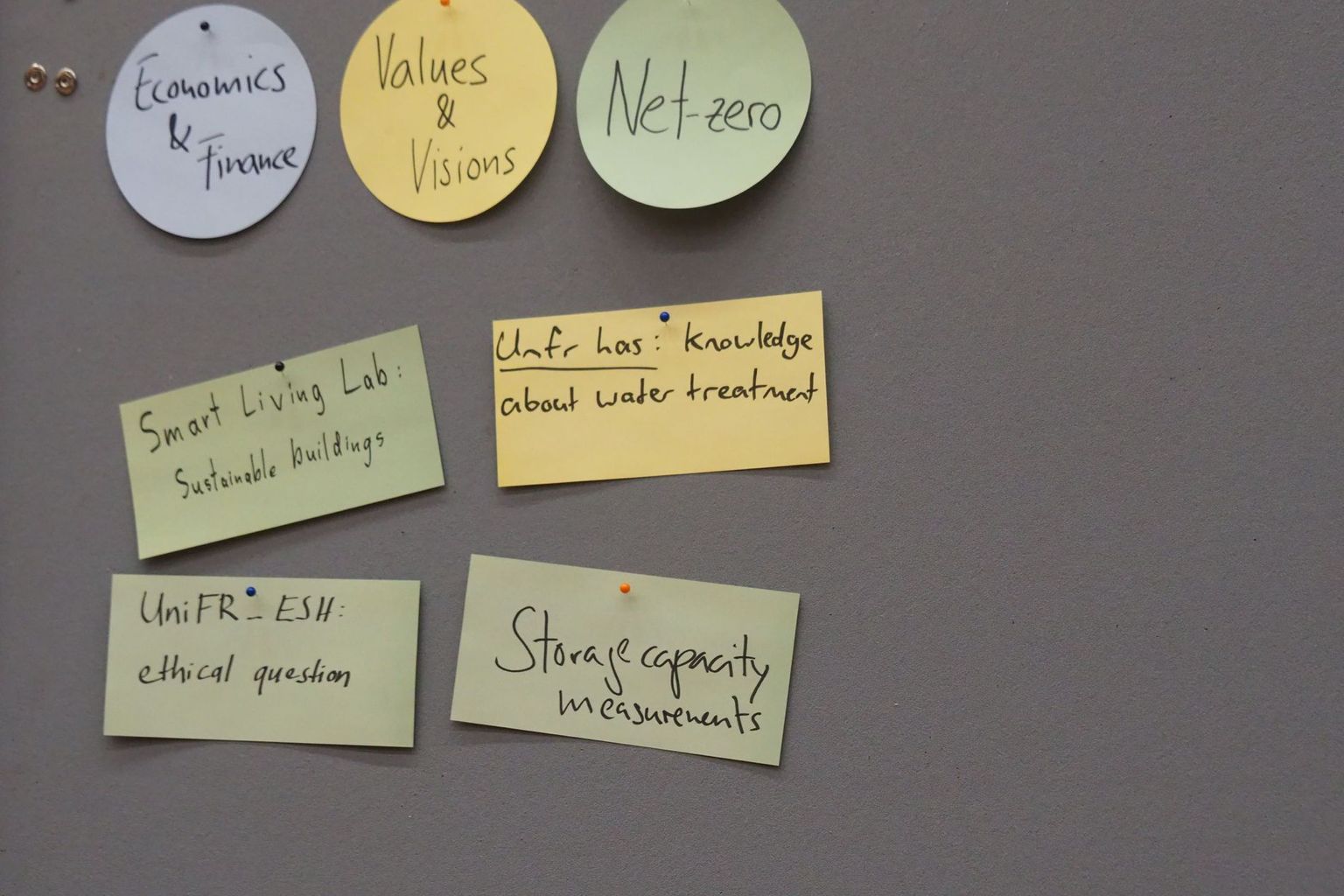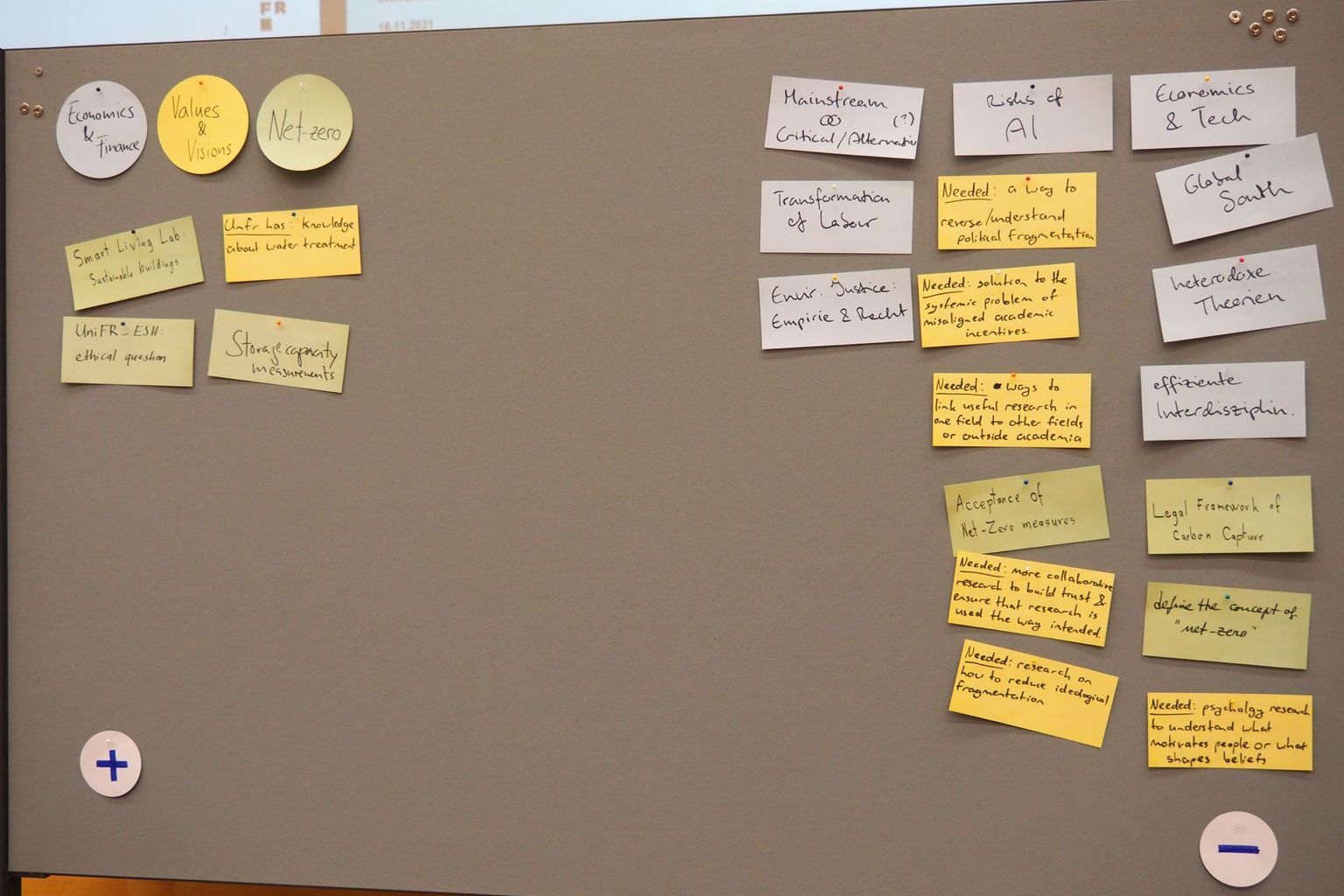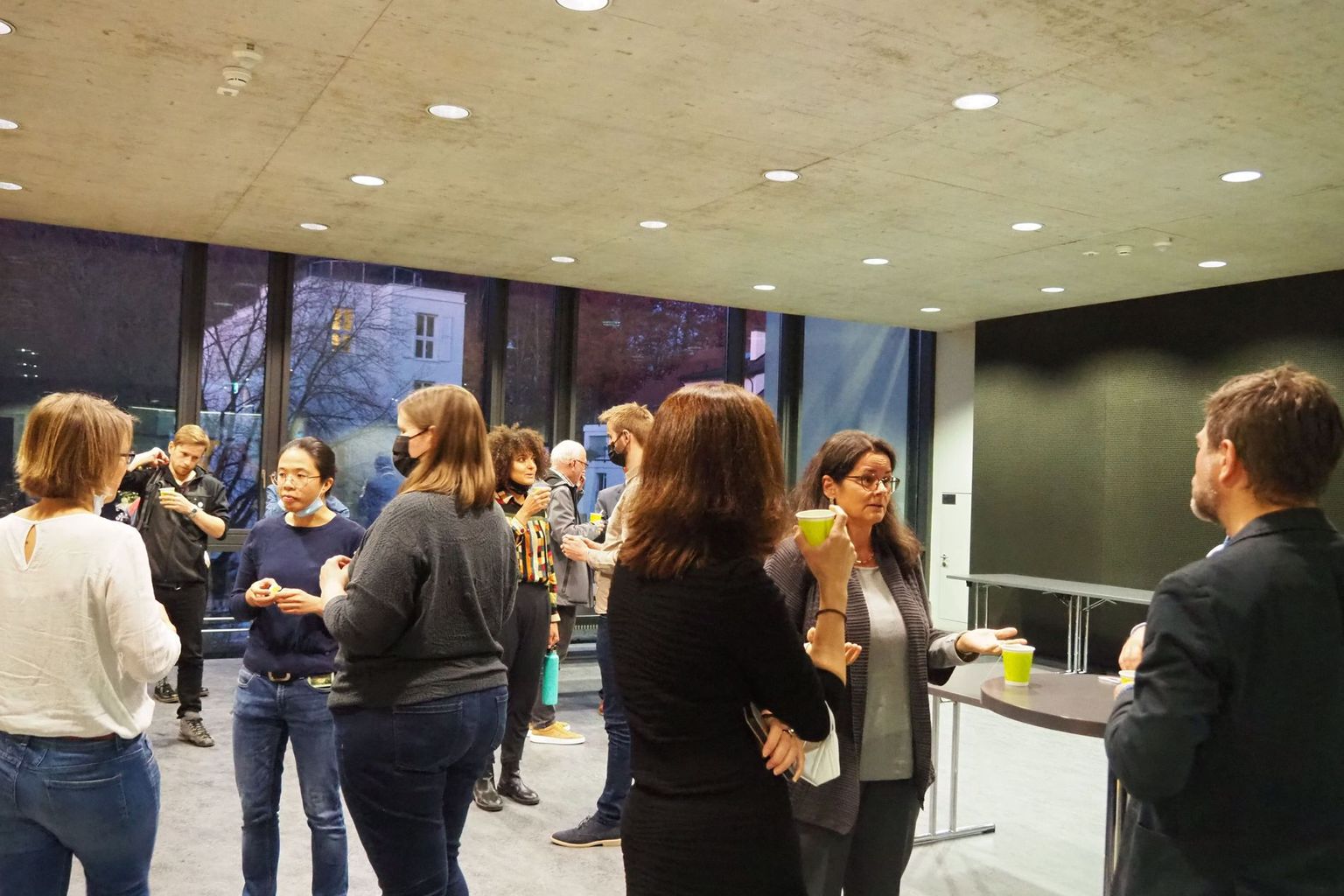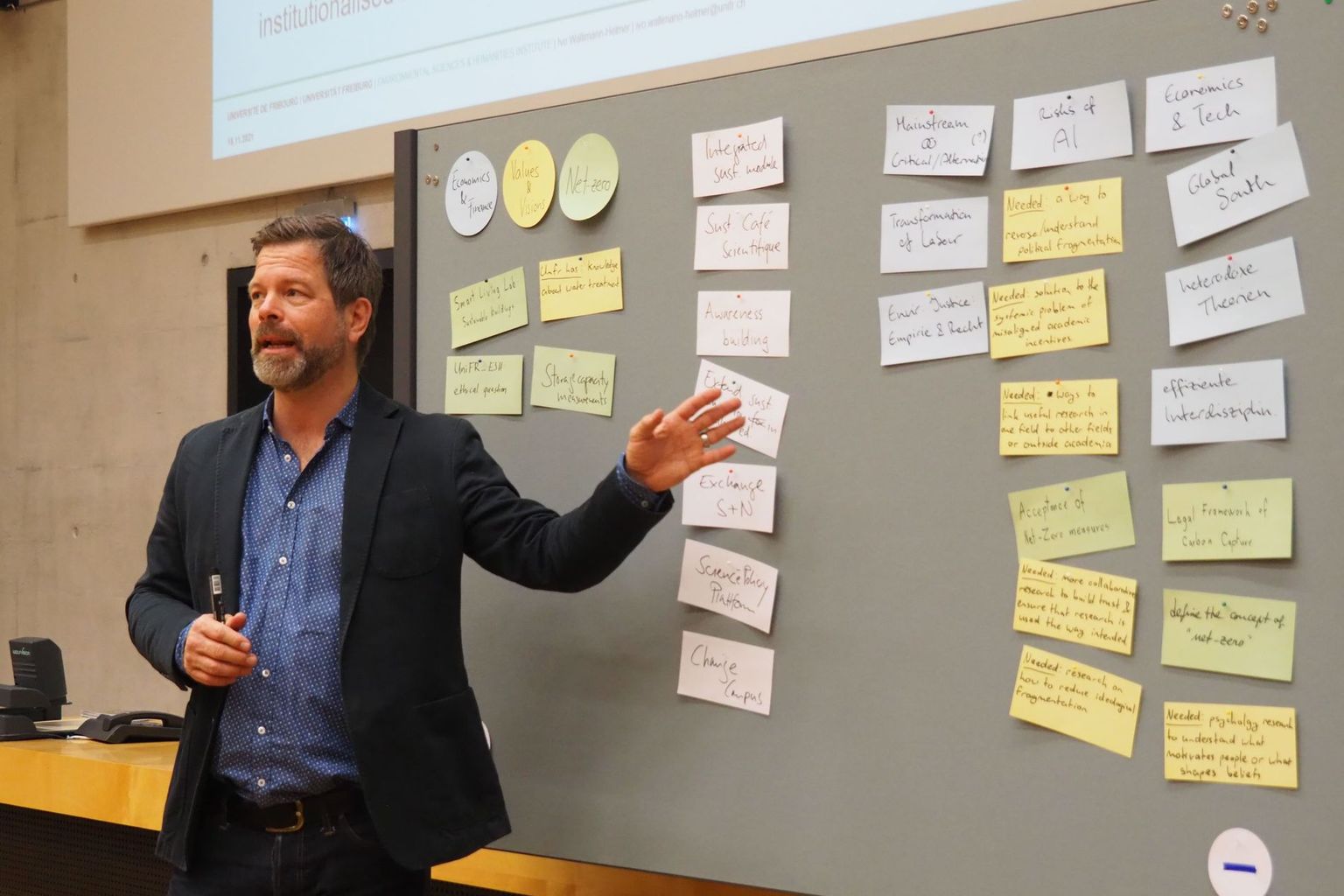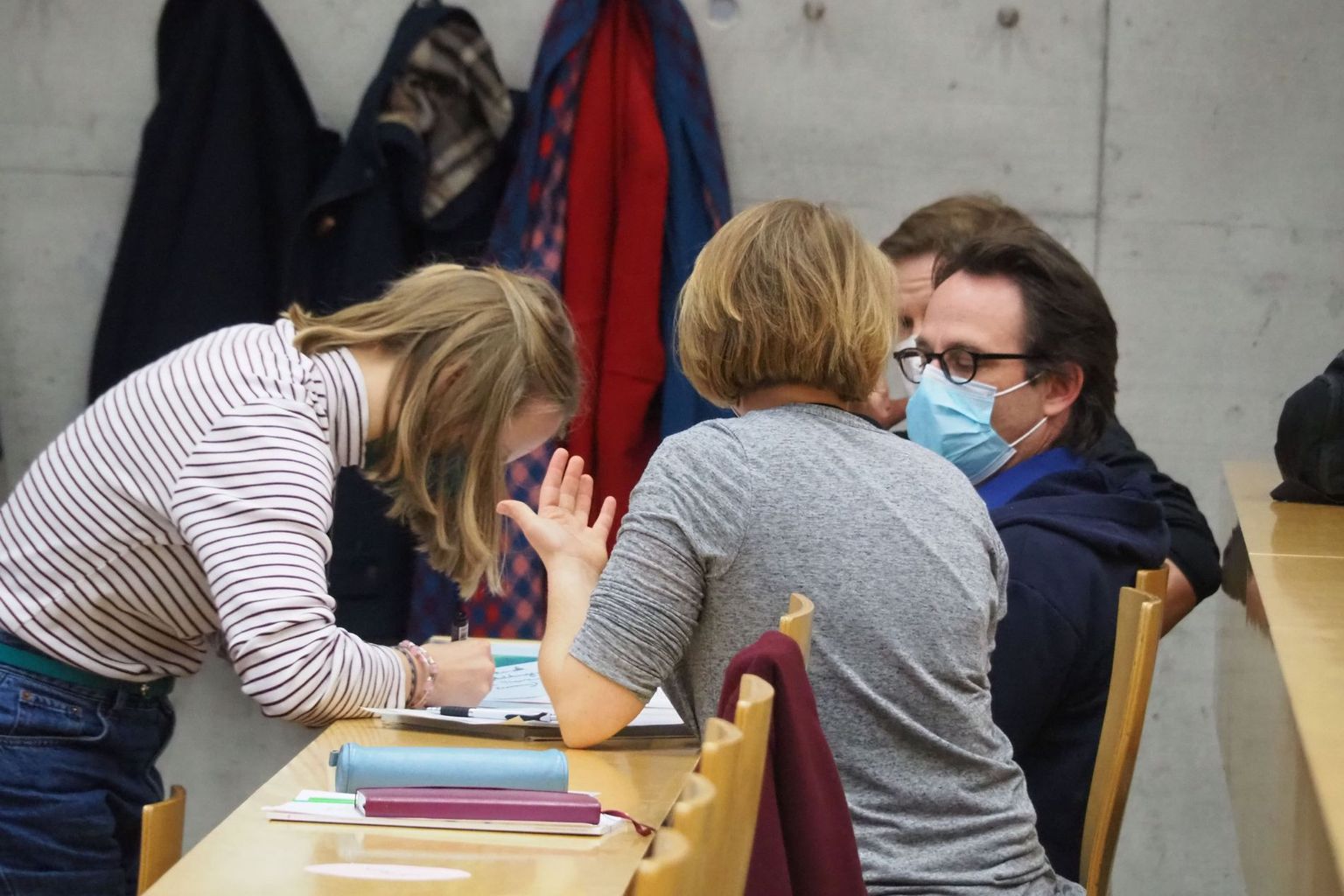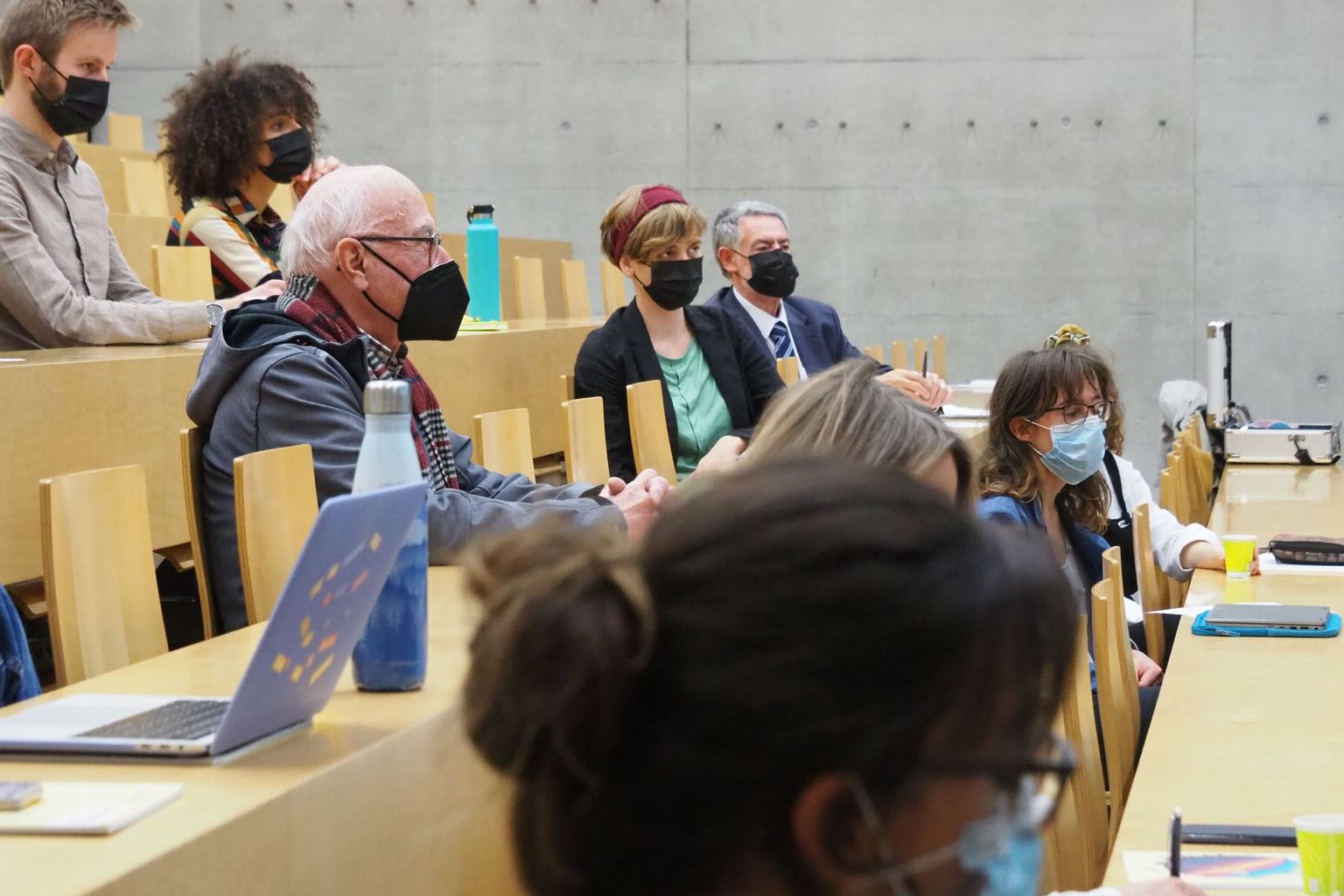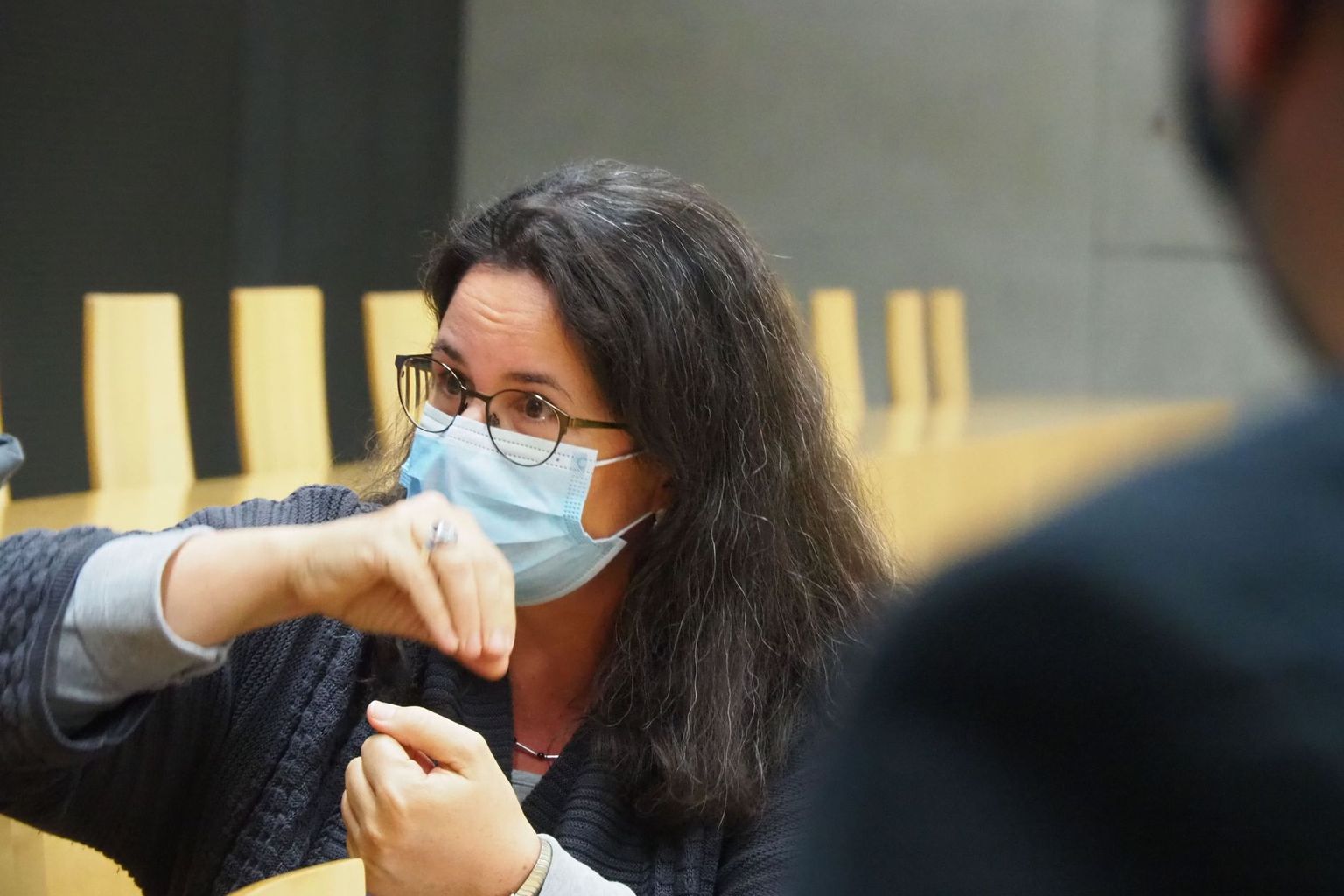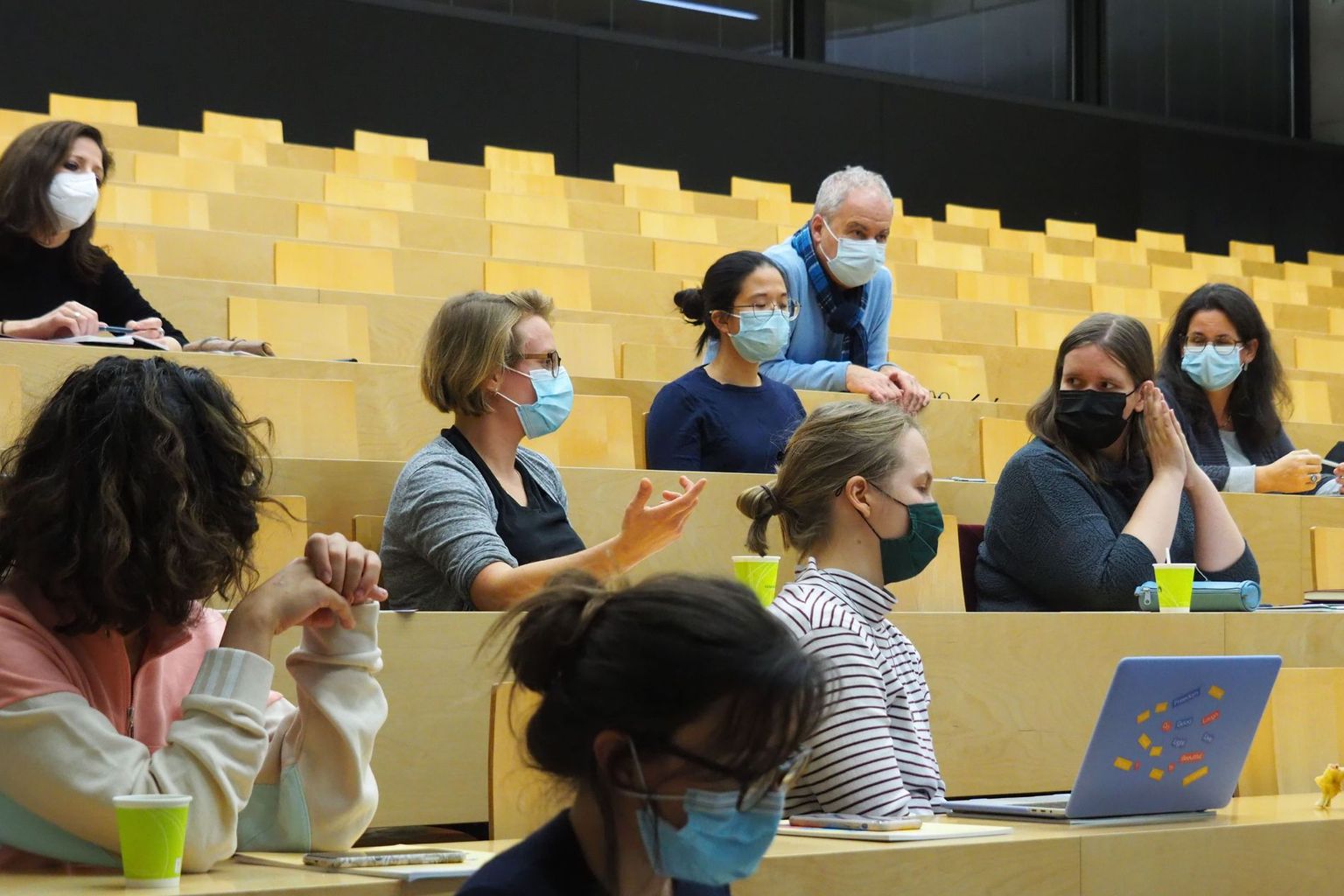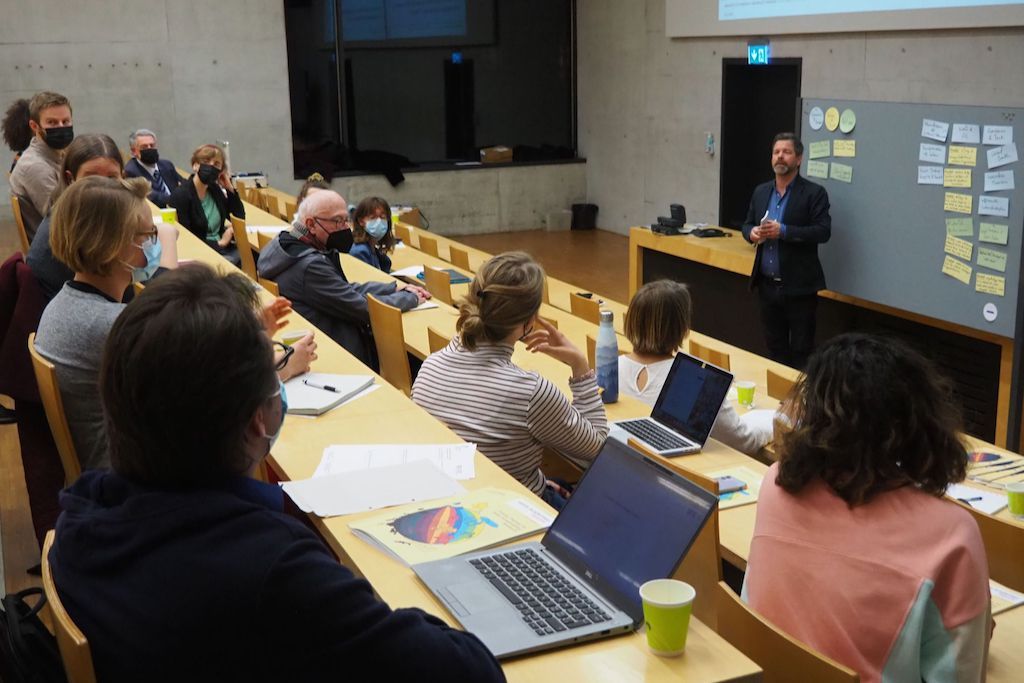Blog: University of Fribourg: Sustainability Science Dialogue + Opening event of the UniFR_ESH Institute
The Sustainability Science Dialogue event on November 18 2021 at the University of Fribourg centred around decarbonisation, societal values and alternative economic systems. It was followed by the inauguration of the Environmental Sciences and Humanities Institute (UniFR_ESH Institute) – the designated new home for work on these issues.
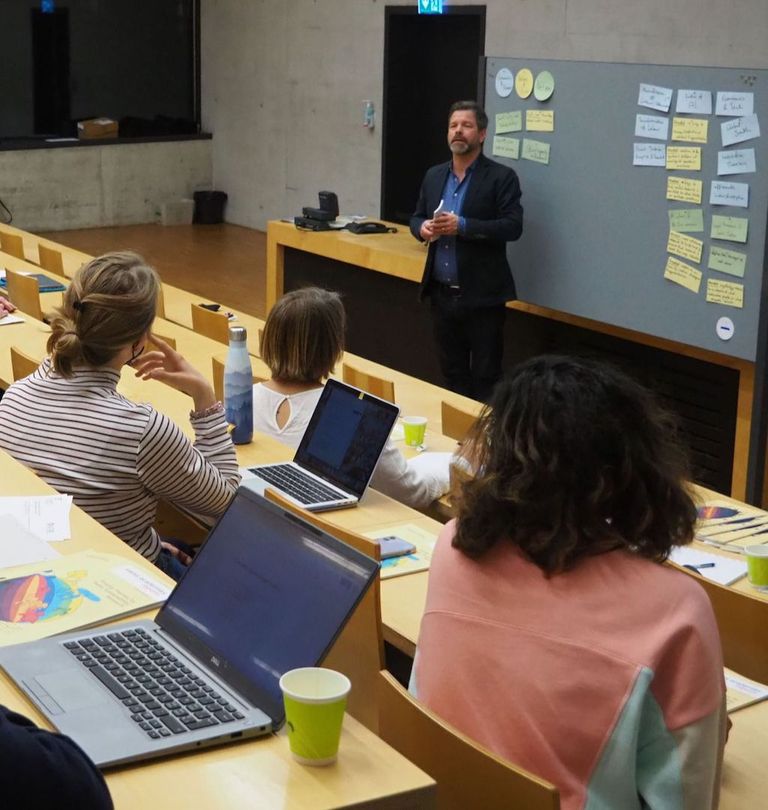
The main questions were: 1.) Which aspects of the priorities identified by the Swiss Academies are already being researched at the University of Fribourg? In which areas does it contribute to the priority topics?
2.) What are the main gaps and unresolved issues?
3.) How can research and teaching on these issues be strengthened at the University of Fribourg, what institutional requirements are needed for this, and what can the UniFR_ESH Institute contribute?
The event was opened by a keynote speech by Peter Edwards, president of the Sustainability Research Initiative of SCNAT. He argued that lack of sustainability is essentially a societal problem that needs to be worked on through inter- and transdisciplinary collaborations. In searching for solutions, social sciences and humanities have a crucial role to play, especially when it comes to policies, values and societal acceptance. Initiatives such as the University of Fribourg’s Environmental Sciences and Humanities Institute (UniFR_ESH institute) are therefore important steps.
Peter Edwards also stressed the important role of the academic community in helping governments tackle very complex problems such as climate change, societal inequalities or migration. “No government can handle these challenges alone”, he said. Research that provides decision-makers with actionable knowledge in the form of achievable goals and metrics should receive more widespread funding and be seen as an important opportunity for universities.
Inspired by this keynote and the subsequent group discussions on selected research priority areas suggested by the Swiss Academies, a number of issues were brought to the table:
New paradigms needed in economics
Sustainability issues are often ignored in mainstream economics taught at universities. Alternative conceptual models such as Kate Raworths “donut economics” should be integrated in economic research and teaching, also at the University of Fribourg.
Values and visions for a sustainable life
Fuelled by the Covid crisis, fragmentation between academic communities and society has increased. As one participant asked, ”how can we get people to understand each other better?” Constructive dialogue that encourages people to talk to each other and learn to understand differing and opposing opinions is necessary. Psychological research needs to play a role in supporting and fostering such a dialogue, among other things. Further, including the topic of sustainability already in school education and – a task for the University of Fribourg – into the training of future teachers.
Addressing fears around a net-zero greenhouse gas emissions society
The technological challenges of achieving a net-zero GHG emissions society are the topic of intensive research across the world. However, the goal of zero GHG emissions also raises many non-technological issues that urgently need to be addressed. What are legal and financial implications of carbon capture and storage? Will these be acceptable to citizens? Many people associate a net-zero future with fears of giving up comforts and a lower quality of life. These fears need to be addressed by researchers and politicians alike. ‘Net zero’ is often seen as a vague concept, and at universities mainly engineering and tech-driven faculties conduct such research. For the University of Fribourg, there is a huge research potential for social, ethical, anthropological, theological and legal questions associated with a net-zero society.
More room and recognition for engagement in sustainability
How can scientists be motivated to focus more on urgent and important sustainability questions, without undermining scientific liberty and free choice of research questions? Scientists are under enormous pressure to publish, leaving very little time to engage in collaborative activities or developing interdisciplinary teaching programmes. One of the guests stated that oftentimes the extra time and motivation required for joint activities on sustainability are lacking. If engagement in sustainability was more integrated into both research and teaching activities, it would not come across as being an “extra” burden.
The Environmental Sciences and Humanities Institute (UniFR_ESH Institute) wants to explore new ways of getting students and academics at the University of Fribourg engaged in sustainability issues. One example are its “environmental humanities lunches”. In this bi-weekly event, scientists and practitioners are invited to present their work and reflections and their ethical implications. Further ideas suggested by participants for more engagement of students and doctoral students include:
- Doctoral students being affiliated to two different faculties could foster interdisciplinary exchange.
- Creating meeting places and encouraging encounters. One of the guests explained, that the Café Scientifique at the University Fribourg used to be on campus. Now it is held at a bar near the train station and has considerably more success. Moving the environmental humanities lunches to a more central location or rotating between campus Pérolles and campus Miséricorde could therefore become key.
It was concluded that encouraging and enabling more collaboration across disciplines is a great challenge at a university that is strictly organised in disciplinary faculties. The UniFR_ESH Institute is carrying out an inter-faculty MSc programme and strives for additional interdisciplinary teaching programmes; this is an important first step and one can hope that more initiatives of this kind will follow.
Authors: Anne-Catherine Minnig
Sustainability Science Dialogue Blog
- Blog: Sustainability Science Dialogue: 30 years after “Rio” – New research challenges for sustainable development?
- Blog: Sustainability Science Dialogue - Mehr Vernetzung für die Nachhaltigkeitsforschung an der ZHAW
- Blog: Sustainability Science Dialogue – Nachhaltige Entwicklung von Natur- und Siedlungsräumen im Kanton Bern
- Blog: Sustainability Science Dialogue – Gemeinsame Werte, Visionen und Wege zur Nachhaltigkeit
- Blog: Rétrospective sur les Dialogues durabilité et recherche de la HES-SO
- Blog: University of Fribourg: Sustainability Science Dialogue + Opening event of the UniFR_ESH Institute
- Blog: Swisspeace: A migration perspective on visions of a sustainable future
- Blog: University of Neuchâtel: Sustainable mitigation and adaptation to climate change


